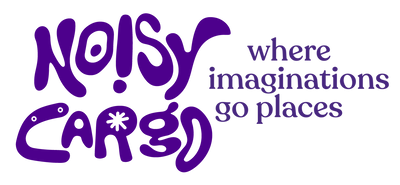GOTS certification is about transparency and traceability of organic products. GOTS covers all steps of the textile supply chain, including harvesting raw materials, manufacturing processes, packaging, labeling, trading, and distribution. Below are some helpful details about organically grown fibers and how they impact our lives and environment.
Only 1.4% of world cotton grown is organic.
Gots-certified organic crops are NON-GMO, and any chemicals, pesticides, or fertilizers are banned in Organic cotton production.
Organic cotton uses 91% less water than non-organic
Organic cotton is 80% rain-fed, reducing strain in drought-prone areas. By 2025, two-thirds of the world's population will live in water-stressed regions.
Organic cotton supports biodiversity and healthy ecosystems, which means more plants, animals, and bugs can thrive.
Organic farming techniques increase soil fertility and nutrients naturally.
A healthy soil is a carbon sink. The top three feet of soil around the globe store three times more carbon than the entire atmosphere.
Nutrient-dense soil helps prevent soil erosion.
Organic farming grows more resilient crops that naturally withstand pests or bad weather.
The lifecycle of organic cotton clothing creates 5 to 22 times less water pollution than non-organic cotton.
Gots-certified organic cotton promotes fair wages and better working conditions for farmers, raising many out of poverty.
GOTS-certified Organic cotton promotes gender equality, particularly in Africa and Asia. Around 10% of organic farmers are women and have control of their farms.
Organic cotton uses 62% less energy to grow and produce than non-organic cotton.
GOT-certified organic cotton fibers are typically more robust, better quality, durable, more comfortable, and much softer on the skin. They are also hypoallergenic, making them a perfect fit for sensitive skin.
Organic cottonseed is significantly more valuable than regular cottonseed, ranging from $500-$740 per ton versus $275 to $460 per ton for regular.
Estimates suggest by 2030, the demand for organic cotton will increase by 84%.
GOTS-Certified "Organic" is legally regulated, unlike vague terms like natural or sustainable. Government authorities set specific rules that farmers must follow to be allowed to label their cotton as organic.
Farmers must follow stringent guidelines to market their crops as organic. These include avoiding genetically modified organisms (GMOs), synthetic fertilizers, or harmful chemical pesticides and maintaining soil quality.
Independent certification bodies such as GOTS cover the entire supply chain, from organic farming practices to what happens when the cotton leaves the farm.
The top 3 countries in terms of the number of GOTS-certified facilities are India (3699), Turkey (1674), and China (1646).
Supporting GOTS-certified products drives innovation in sustainable and ethical textile production methods. By supporting GOTS-certified organic clothing, consumers play a crucial role in promoting sustainable and ethical practices in the textile industry, benefiting the environment, workers, and society.





